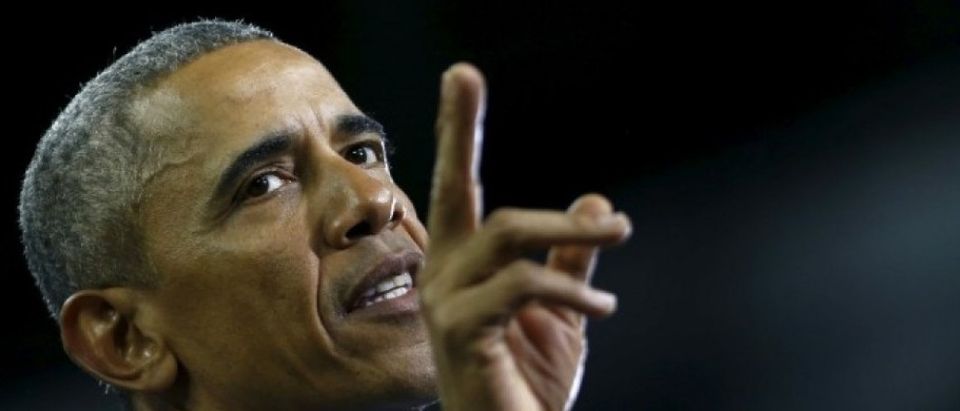In his State of the Union address, President Obama assured us that “our standing around the world is higher than when I was elected to this office.” He leaves us in the position of believing either our president or our own eyes.
The President has labored tirelessly since his apology tour of 2009 to gain the love and trust of the world — even of our enemies. What he has succeeded in doing is earning the world’s contempt, especially of our enemies.
For example, the news broke last week that, by a series of mysterious events, one of our Hellfire missiles somehow arrived in Cuba from an ally in Europe instead of at home in the United States. The Hellfire is a powerful air-to-surface missile that houses highly protected, multi-target, precision-strike technology. Cuba’s interest in the acquisition is the fortune that nations like Russia, China, and North Korea would pay the cash-strapped, communist nation to obtain it.
But this all happened back in 2014. Nonetheless, despite Cuba’s unwillingness to return the misdirected package, the Obama administration re-established diplomatic relations with them anyway. To our international rivals, this confirms us as a pushover nation — the patsy superpower.
This is not their first impression of our president’s easily suckered optimism. In 2012, unaware that his microphone was live, President Obama assured Russia’s then-president Dmitry Medvedev that he would have more flexibility to negotiate on nuclear missile defense after his re-election. Since then, the only re-set we have seen on Russia’s part is to Soviet era expansionism: Russia annexed Crimea, supported rebels trying to break off from Ukraine, and probed the cohesion of the NATO alliance in the Baltic region. The bear is roaming freely in the suburbs.
China has hacked sensitive information from American corporations and millions of employees and contractors at the U.S. government’s Office of Personnel Management without consequences. One is reminded of the British policeman who pursued a thief, shouting, “Stop! Or I’ll say ‘stop’ again!”
When Syria’s President Basher al-Assad was bombing his own people into submission, our Commander-in-Chief drew a “red line” at the use of chemical weapons. But when evidence of this emerged and the Russians temporarily distracted from it with an offer to settle the matter, we walked away as though the subject had never come up.
Iran too shows us little regard. Just this week they seized 10 of our sailors who drifted into Iranian waters on a disabled boat. Iran released the sailors the next day, but only after humiliating them — and their country — on their knees at gunpoint and later in apologetic remorse. This comes after they fired missiles provocatively close to one of our warships in the Straits of Hormuz, an especially brazen act given that it comes just before the implementation of the nuclear deal.
In world affairs, if you seek to be loved, you will get contempt. But if you cultivate fear, you will get respect. Healthy fear — a circumspect appreciation for the ability and willingness of others to defend their vital interests — is what settles the world in peace. Obama boasts before Congress of our incontestable power, but power without confidence invites rogues to contest it. Hence, our world of difficulties.
D.C. Innes is an associate professor of politics at The King’s College in New York City


